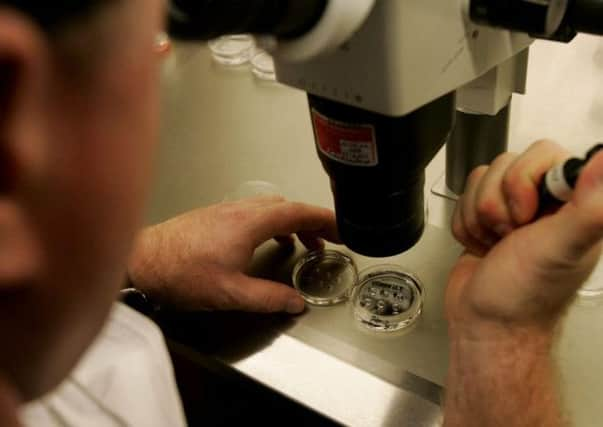Lyndsay Buckland: Money shouldn’t only go to those who shout loudest


On top of that, for every drug that makes it to the pharmacy shelves, many more will have fallen by the wayside. Only by testing compounds will we know whether they will do what we want them to.
It is for this reason that the development of drugs for rarer conditions – in some cases only affecting a handful of patients – is often beset with difficulty.
Advertisement
Hide AdAdvertisement
Hide AdIf you’re a pharmaceutical firm, you can easily visualise the potential market for treatments for widespread illnesses such as diabetes or asthma. But what about those conditions so rare that most people – including doctors – will never even come across them in their lifetime?
This week we’ve seen some progress in treatment for one such illness – a rare childhood muscle cancer called Rhabdomyosarcoma (RMS).
Researchers in Aberdeen have managed to identify the specific protein in the body which causes the tumours in the young patients affected. When this protein was removed in mice, the cancers shrunk, making it an obvious target for new treatments.
RMS affects just 60 children a year in the UK, and other illnesses will strike even smaller numbers. But how can you tell these patients that their disease is too rare for anyone to have bothered looking for treatments for it, and that it’s just not profitable enough for any company to make a drug to treat it?
Many researchers are looking into these conditions, whose long unpronounceable names are so often reduced to a series of letters. But could we be doing more to support their work? The answer, of course, is yes.
Divvying up the cash pot for medical research is never easy. Charities and patients’ groups on every side will argue their corner, as they rightly should. But the danger is that those who shout loudest get the most.
This has certainly been suggested as the reason why breast cancer research does better than other forms of the disease, thanks to the vociferousness of their many lobby groups.
But we must all act as the voice for less well-known diseases, with universities, drugs companies, governments and charities joining forces to push their cause.
After all, any one of us could be next to get such a diagnosis, only to be told there isn’t much in the way of treatment to help us.